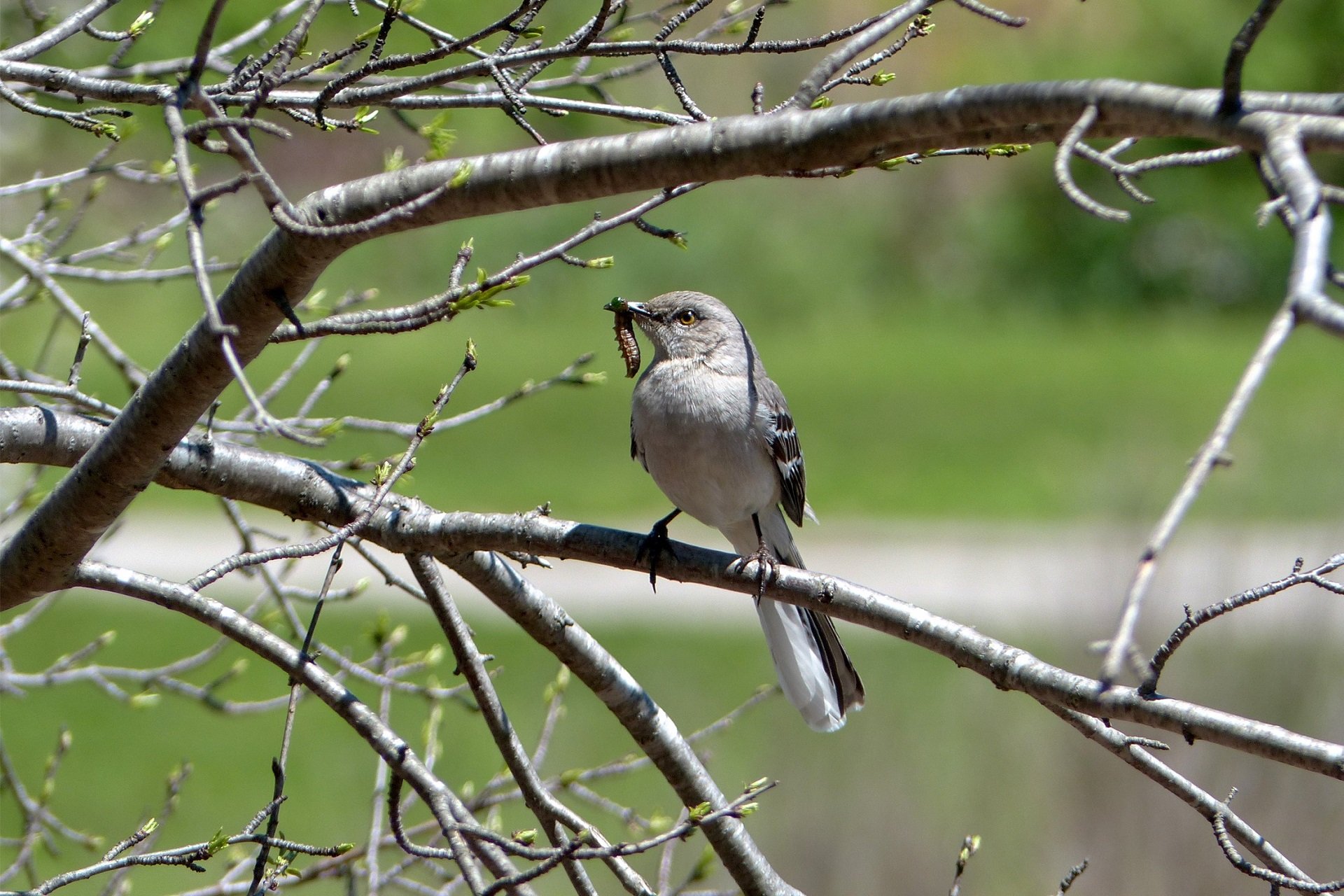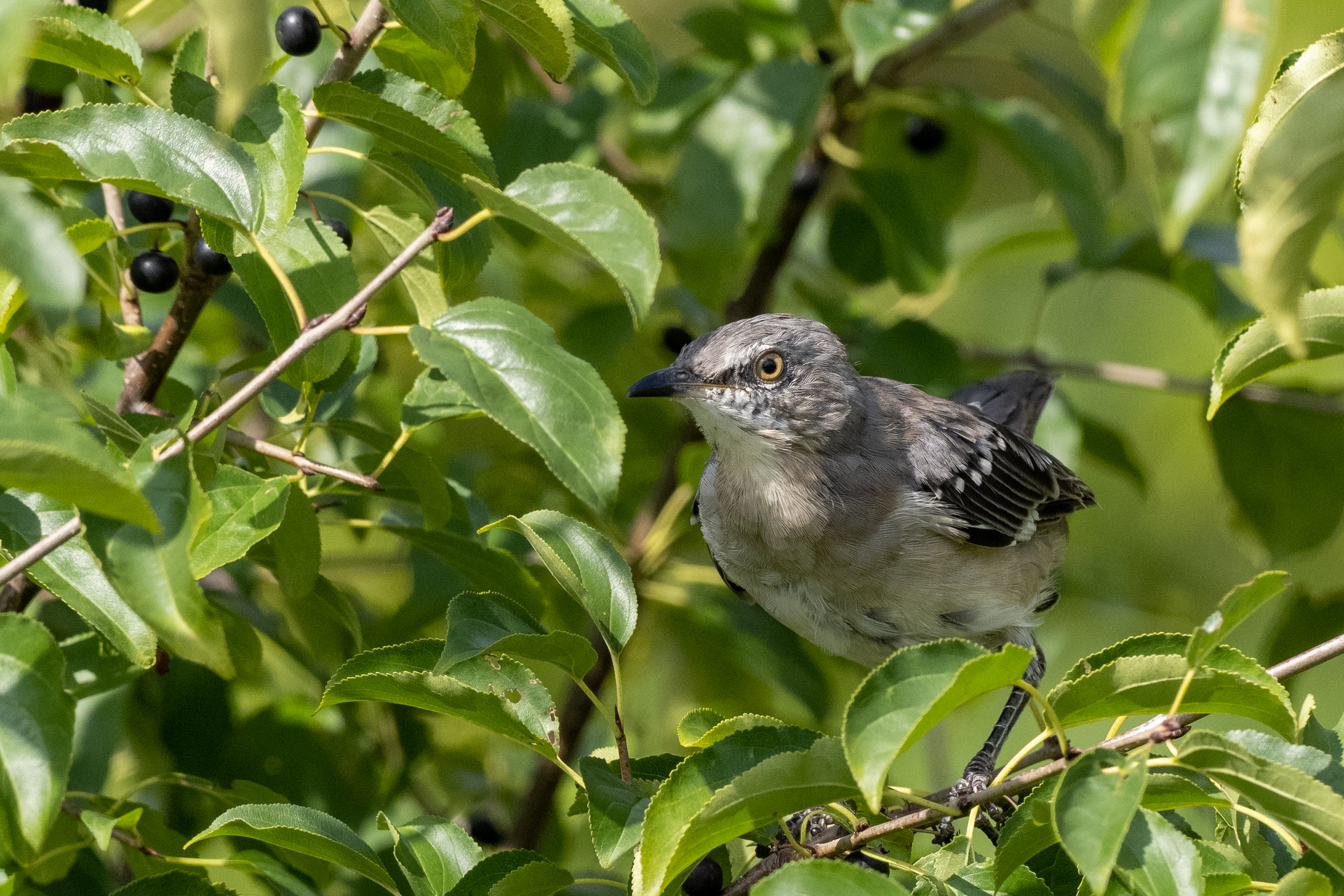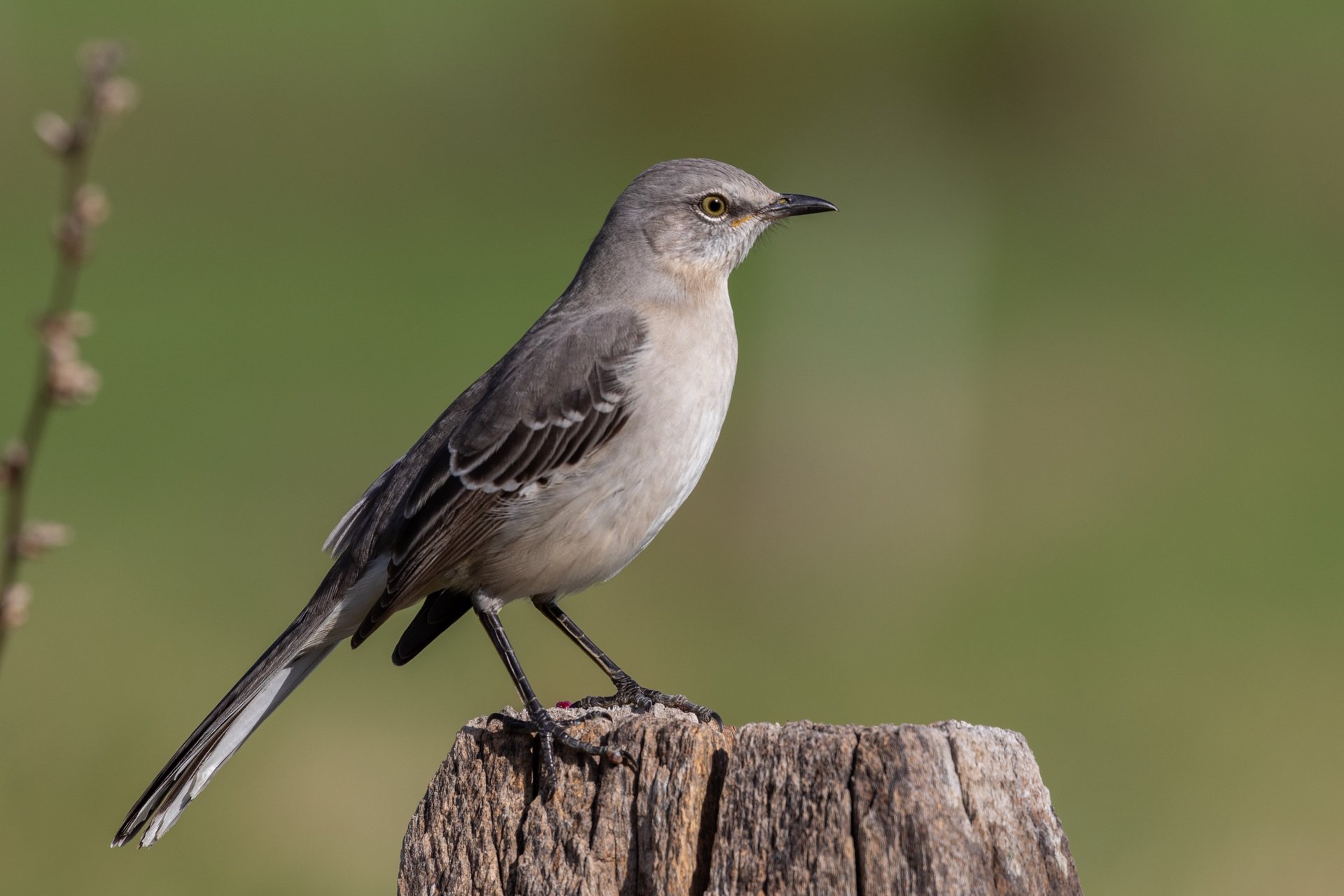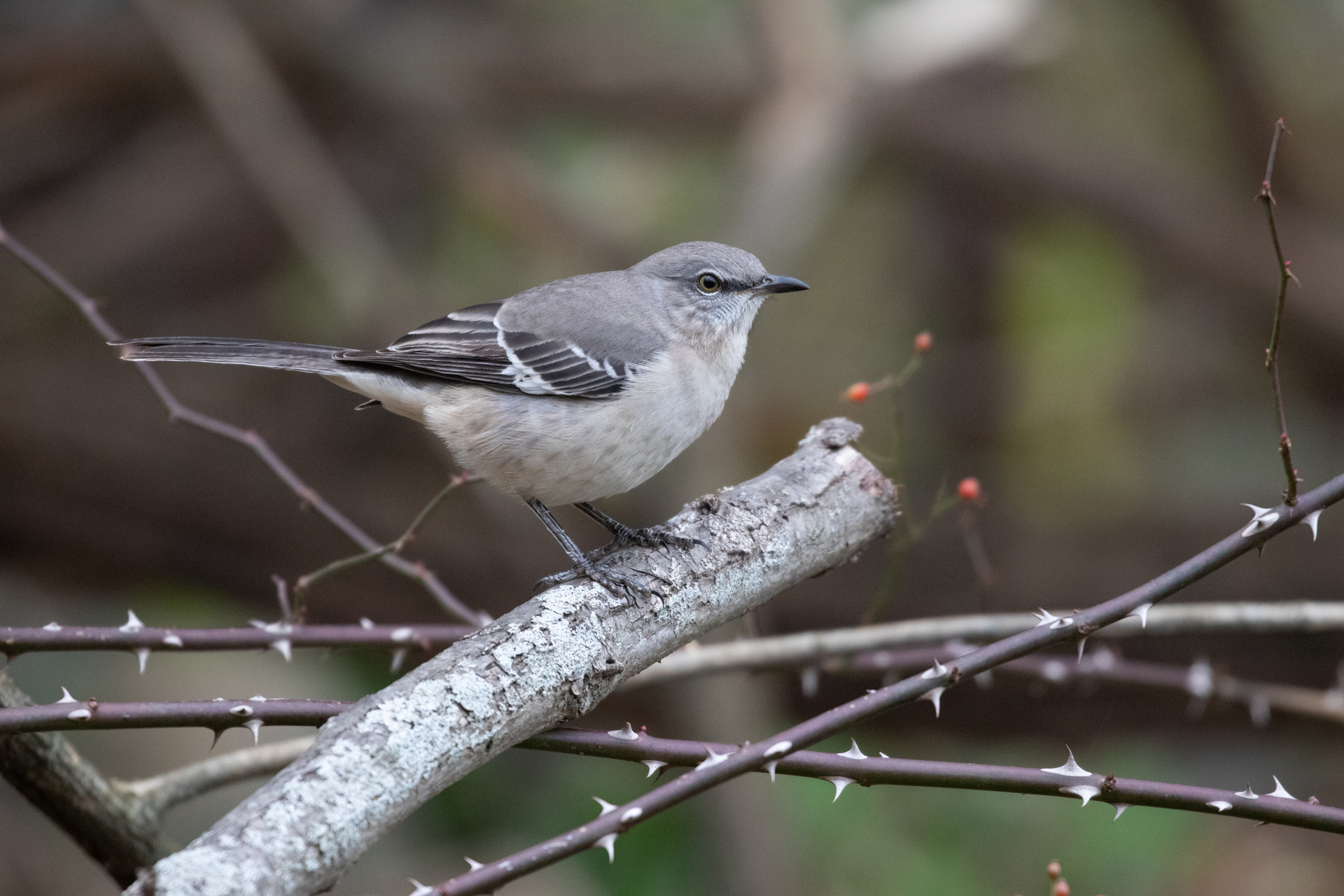Birds in Massachusetts
Northern Mockingbirds
These accomplished mimics are year-round residents in Massachusetts. The Northern Mockingbird's loud, complex song creations can be heard in many a neighborhood and garden in spring and summer but come winter mockingbirds adopt a lower profile. Sheltering in thick tangles and foraging for berries and other soft fruits, Northern Mockingbirds are quieter but still present throughout the colder months.
How to Identify Northern Mockingbirds
Mockingbirds have slender bodies, long tails, and short, straight bills. Bill to tail tip, an average individual measures 10”.
Northern mockingbirds are mostly an unremarkable gray, with pale breasts and stomachs and dark wings. When a mockingbird flies, it reveals bright white patterns on the wings and tail that serve as excellent field marks.
Northern Mockingbird Songs
Mockingbirds are in the family, Mimidae, which means mimic or imitator. The mockingbird has been known to make the vocalizations of almost 40 birds, as well as a creaking door, barking dog and whistling mail carrier. A northern mockingbird’s “song,” often delivered from a branch tip, rooftop, fencepost, or other conspicuous perch, is composed of phrases mimicked from other birds, each repeated several times in quick succession. A mockingbird with a large and diverse repertoire stands a better chance of impressing a mate.
Northern Mockingbird Behavior
During the breeding season, Northern Mockingbirds are easy to see, whether singing from a prominent perch or pugnaciously chasing off rivals and competitors. Mockingbirds hunting insects will run along the ground, occasionally pausing and half-raising their boldly patterned wings in an effort to startle insects into flight.
In the winter, mockingbirds often perch in evergreen shrubs or thick tangles that afford some protection from harsh weather, and their diet shifts to being dominated by berries and fruit.
Mockingbird Night Singing
One of reasons people notice mockingbirds is because they are frequently heard singing in urban and suburban neighborhoods at night. The male virtuoso sings his repertoire anytime to attract a female. This behavior occurs during breeding season in late spring and early summer and usually lasts only two or three weeks at the most. Mockingbirds have two broods each season so the singing may start again in mid-summer for another brief period.
Other birds that sing at night during breeding season include several common species of owls such as barred, great horned, screech, and saw-whet. Great horned owls can start night calling as early as February.
If the night singing is disrupting your sleep, you can use any type of white noise to drown out the sound of the mockingbird or purchase a pair of soft ear plugs.
Where Can I See Northern Mockingbirds?
After a remarkable increase and northward expansion in the latter half of the 20th century, Northern Mockingbird numbers seem to be settling toward a more moderate baseline level. Mockingbirds are widespread in Massachusetts, but most commonly encountered in the Connecticut River Valley and eastern Massachusetts.
How Mass Audubon is Supporting Birds in Massachusetts
Mass Audubon works at our wildlife sanctuaries and beyond to ensure that the nature of Massachusetts continues to thrive. By scientifically monitoring Massachusetts birdlife, Mass Audubon informs important conservation decisions and launches targeted initiatives to help at-risk species. In addition, fostering healthy habitats, supporting native species, and educating people about the importance of nature conservation is critical to our success. Learn more about our work
How You Can Support Birds in Massachusetts
Mass Audubon supports birds like the Northern Mockingbird every day, but we couldn’t do it without the support of our 160,000+ members.
Help support Northern Mockingbirds, and birds like them, by becoming a member today.
Upcoming Bird Programs
See MoreMonthly Bird Walks
-
Magazine Beach Park Nature Center, Cambridge
-
Saturday, February 21
8:00-9:30am
Adults
Winter Birding at Squantum Point Park
-
Squantum Point Park, Quincy
-
Saturday, February 21
8:00-10:00am
Adults
Winter Birding at Long Pasture
-
Long Pasture Wildlife Sanctuary, Cummaquid
-
Saturday, February 21
8:00-10:00am
Adults
Stay Connected
Don't miss a beat on all the ways you can get outdoors, celebrate nature, and get involved.






